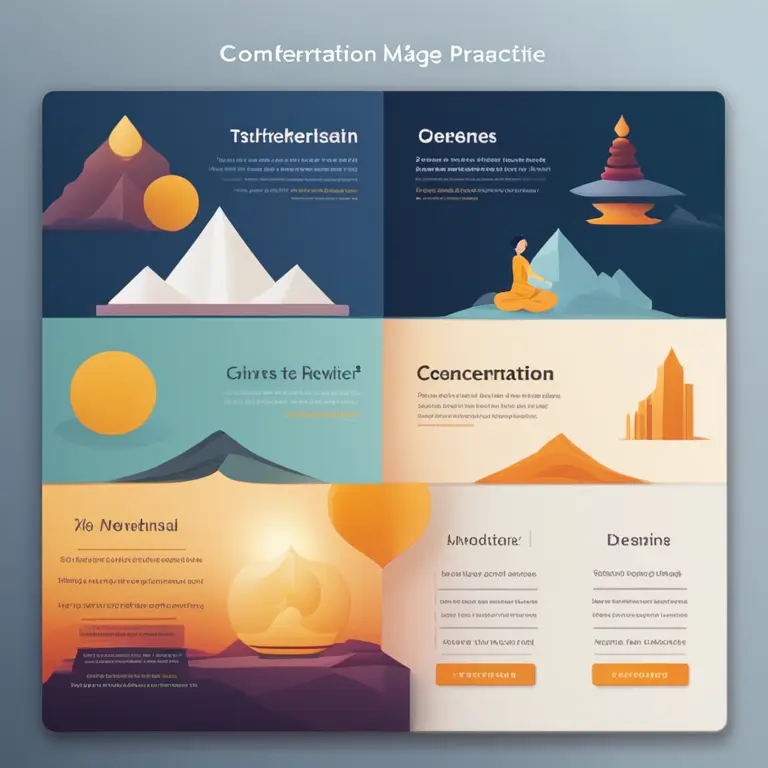
Can Meditation Enhance Your Concentration?
Discover how consistent meditation practice can have a profound impact on your concentration abilities in our in-depth analysis.
article by Hina Kurosawa
The Connection Between Meditation and Concentration
Meditation has been practiced for centuries as a means to foster inner peace and enhance mental faculties. In recent years, its popularity has soared in the realm of cognitive improvement, especially concerning concentration. As mindfulness and meditation have become mainstream, scientific studies have sought to quantify their benefits. This surge in research provides a contemporary understanding of how meditation can indeed sharpen concentration, leading to greater focus and heightened cognitive performance. It indicates that through regular meditation, individuals can train their brains to become more attentive and less prone to distraction.

Scientific Insights into Meditation's Cognitive Perks
Studies from leading institutions in 2024 and beyond have shown that meditation practices activate certain areas of the brain related to attention. The anterior cingulate cortex and prefrontal cortex, two regions involved in concentration, are particularly engaged during meditation. Moreover, consistent practice has been linked to sustained changes in these areas, suggesting that meditation can lead to long-term improvements in one's ability to concentrate. Furthermore, research reveals that even short-term meditation regimes can begin to cultivate a more focused mind.

Different Meditation Practices for Concentration
The landscape of meditation is diverse, offering a variety of techniques that can cater to individual preferences and goals. Focused attention meditation, such as concentrating on one's breath, is directly aimed at enhancing concentration. On the other hand, open monitoring meditation—an observational practice—encourages a broad awareness that can help reduce cognitive overload and subsequently improve focus during tasks. For those seeking to boost concentration specifically, selecting a meditation style that aligns with this goal is key to reaping the benefits.

Addressing the Skepticism
Despite the compelling evidence, some individuals remain skeptical about meditation's efficacy in this domain. Critics often demand more comprehensive studies and question the placebo effect of meditation. However, the consistency in outcomes across numerous research studies and the growing endorsement by the psychological and neuroscientific community bolster the argument for meditation as a reliable tool for enhancing concentration.
Fitting Meditation into a Daily Routine
One of the greatest attributes of meditation is its flexibility. It can be incorporated into any lifestyle or schedule, without the need for any special tools or environments. Starting with just a few minutes a day, individuals can gradually extend their practice to longer periods as they become comfortable. Such accessibility makes meditation an attractive option for those looking to improve their concentration in today's fast-paced, distraction-laden world.
Future Perspectives on Meditation and Concentration
Looking forward, the interplay between meditation and concentration remains a hot topic within the realms of science and personal development. With advancing technology, such as brain imaging and cognitive testing, we can anticipate an even more profound understanding of how meditation practices can optimize mental functions. It is an exciting prospect for people from all walks of life who wish to enhance their concentration and harness the full potential of their cognitive capabilities.
Published: 1/15/2024
Modified: 1/15/2024
More predictions
Come back here soon to learn more about yourself and your future


Healing Through Mindfulness: Meditation & Trauma Recovery
Mindfulness meditation offers a powerful tool for individuals seeking solace and healing from traumatic experiences. Discover how this practice can aid in the journey towards inner peace.


Easing Loneliness with Mindfulness Meditation
Explore how mindfulness meditation can provide solace and connection to alleviate the feelings of loneliness.


Discovering Life with Meditation Mantras
Delve into the transformative power of meditation mantras to harmonize your mind, body, and spirit for a tranquil existence.